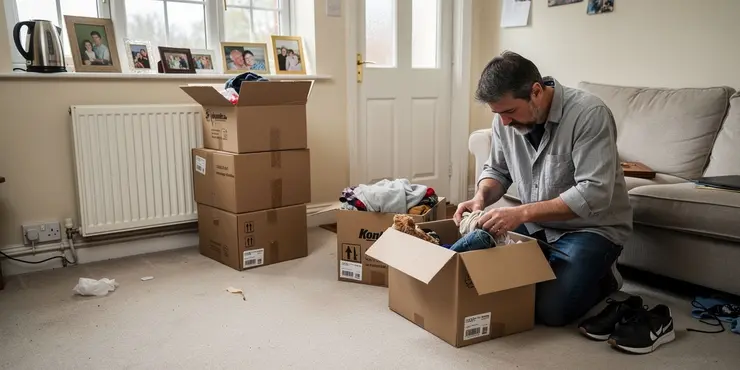
Find Help
More Items From Ergsy search
-
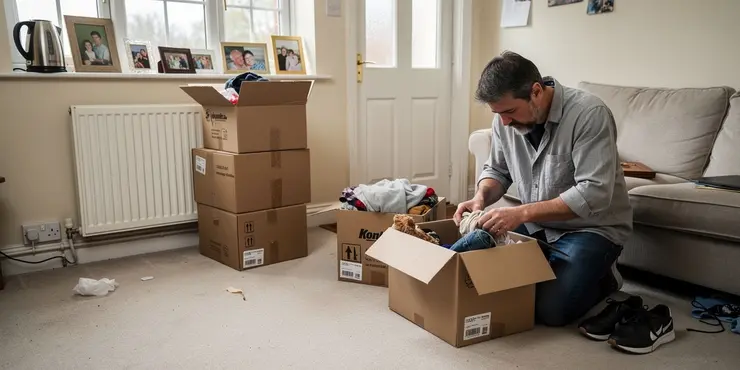
What happens if I stay beyond the eviction deadline?
Relevance: 100%
-
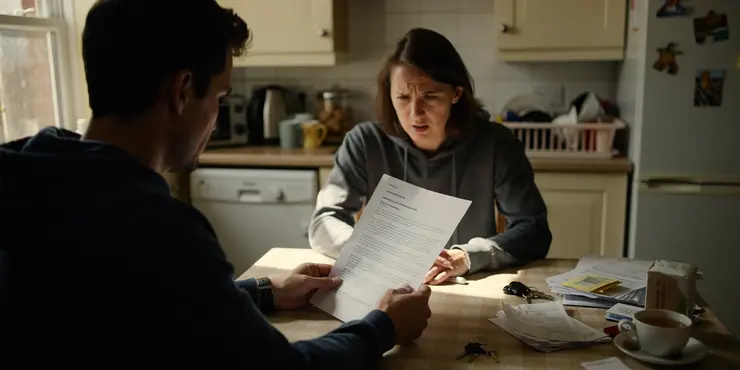
What can I do if my landlord wants to evict me?
Relevance: 65%
-

Are there changes to the eviction process?
Relevance: 63%
-

Can I stop an eviction if I catch up on rent payments?
Relevance: 63%
-
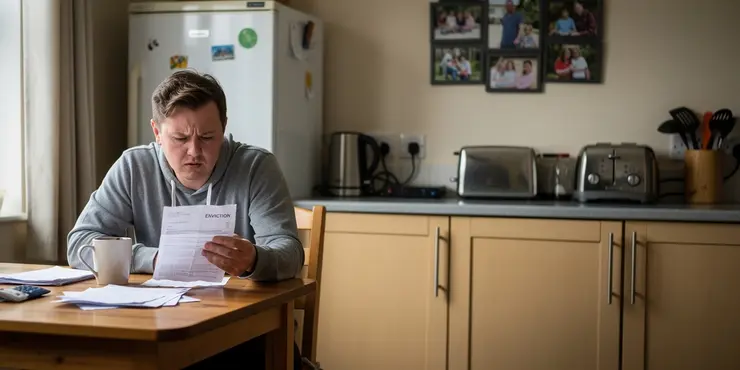
How can I contest or challenge the eviction?
Relevance: 61%
-
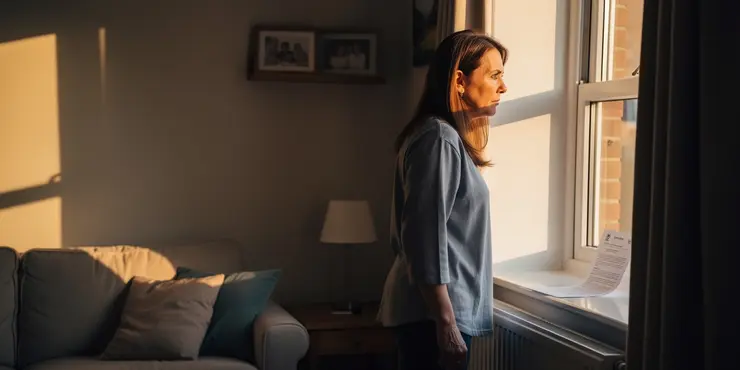
Can I appeal a court's eviction decision?
Relevance: 60%
-

What are the consequences of having an eviction on my record?
Relevance: 58%
-
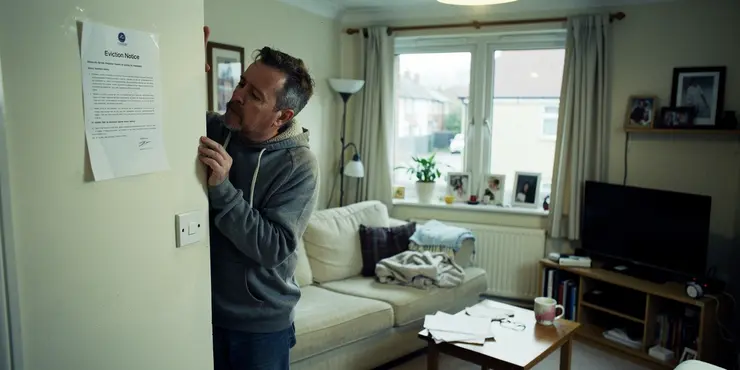
What are my rights during the eviction process?
Relevance: 58%
-
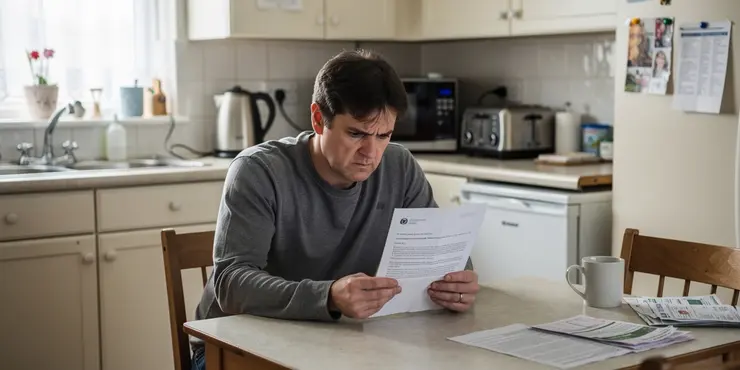
What can I do if I believe my eviction is retaliatory?
Relevance: 58%
-

Has the notice period for eviction changed?
Relevance: 58%
-
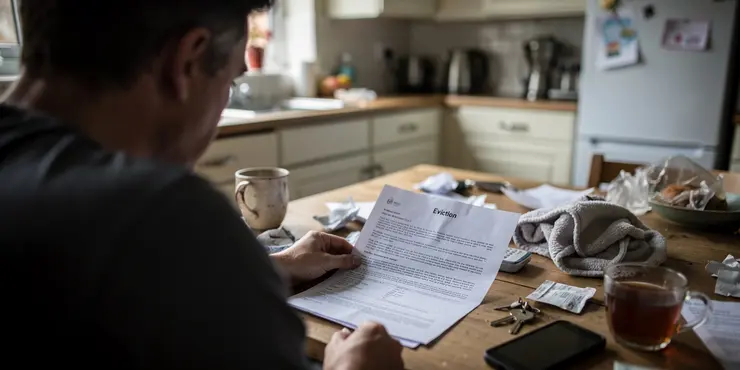
Does filing for bankruptcy stop an eviction?
Relevance: 58%
-
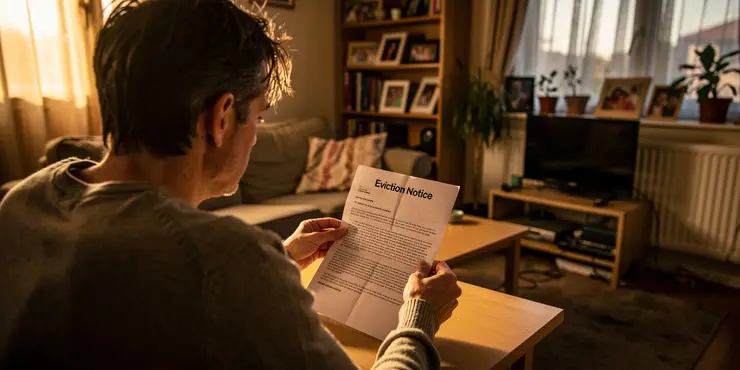
What should I do if I receive an eviction notice from my landlord?
Relevance: 58%
-

Can eviction affect my credit score?
Relevance: 57%
-

Can my landlord evict me without providing a reason?
Relevance: 56%
-

Can a landlord lock me out or remove my belongings to evict me?
Relevance: 55%
-

How can I prepare for an eviction court hearing?
Relevance: 55%
-

What should I do if I can't afford a lawyer for the eviction process?
Relevance: 54%
-

Can I negotiate with my landlord to avoid eviction?
Relevance: 54%
-

Is mediation an option to resolve eviction disputes?
Relevance: 54%
-

Can a landlord evict me for complaining about property conditions?
Relevance: 54%
-

Are there any government programs that can help me avoid eviction?
Relevance: 52%
-

How long do I have to move out after receiving an eviction notice?
Relevance: 52%
-

Is there a deadline for making a claim?
Relevance: 51%
-

How do I find alternative housing quickly if evicted?
Relevance: 50%
-

What is the deadline for filing a tribunal application?
Relevance: 47%
-

When is the deadline to file taxes online?
Relevance: 47%
-

What is the deadline for students to apply for the £500 payment?
Relevance: 45%
-

Is there a deadline to claim the Winter Fuel Payment?
Relevance: 45%
-
Can I file taxes online after the deadline?
Relevance: 44%
-

What happens if I miss the Self Assessment deadline?
Relevance: 44%
-
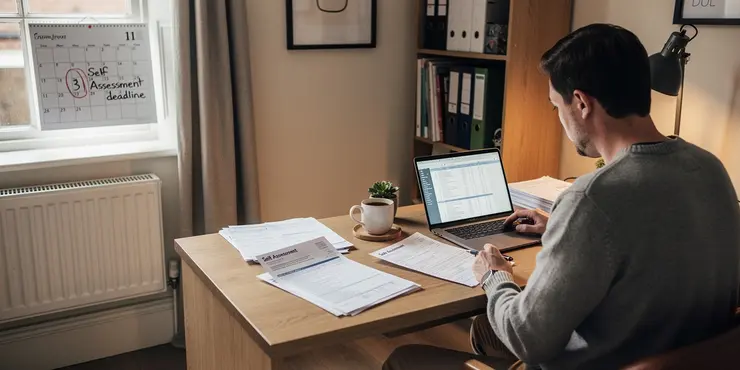
When is the deadline for submitting my Self Assessment tax return?
Relevance: 43%
-

When is the deadline for reporting property disposals for CGT purposes?
Relevance: 42%
-

What happens if I've missed the payment deadline already?
Relevance: 39%
-

Is there a deadline for the Plug-in Car Grant?
Relevance: 38%
-

how do I get the £500 cost of living payment before March deadline?
Relevance: 32%
-

How are landlord-tenant issues resolved in property litigation?
Relevance: 27%
-

What are the new Tenancy Law Reforms in the UK in 2025?
Relevance: 25%
-

When is the deadline to file taxes online?
Relevance: 25%
-

What can tenants do if they are affected by the cuts?
Relevance: 24%
-

Can I file taxes online after the deadline?
Relevance: 23%
Understanding the Eviction Process in the UK
In the UK, when a landlord serves an eviction notice, it indicates that a tenant is required to leave the property by a given deadline. This process usually follows legal protocols designed to ensure fair treatment for both parties. Generally, the eviction notice period varies depending on the type of tenancy and the reason for eviction. It's crucial to understand the implications of staying beyond this deadline to navigate the situation properly.
What Happens If You Stay Beyond the Deadline?
Remaining in the property past the eviction deadline can lead to several legal consequences. Initially, the landlord can apply for a possession order through the courts. This order legally compels you to vacate the premises. If you continue to stay, the landlord can further request a warrant for possession, which authorizes bailiffs to remove you from the property. It's important to note that the eviction process that involves court orders can lead to additional costs, which you may be liable for, and it can also affect your credit rating and future rental opportunities.
The Role of the County Court
Once the eviction deadline has passed, the landlord can escalate the situation to the county court. The court then assesses the case and may issue a possession order. This legal order specifies a date by which you must leave the property. Failure to comply with this order will lead to the issuance of a warrant for possession, and court-appointed bailiffs can then be engaged to enforce the eviction.
Legal Rights and Responsibilities
As a tenant, you have legal rights and responsibilities. While it might be tempting to stay beyond the eviction deadline in hopes of resolving issues with the landlord, doing so can complicate your legal standing. It's advisable to seek advice from legal professionals or organizations such as Citizens Advice to understand your rights better and explore possible defences if you believe the eviction is unjust.
Potential Implications for Future Tenancies
Staying beyond an eviction deadline can adversely affect your rental history. Many landlords conduct thorough background checks, and a history of eviction can make it more challenging to secure a new tenancy. It may flag you as a higher-risk tenant, leading to increased security deposits or even outright refusals from future landlords.
Exploring Alternative Solutions
If you're unable to vacate by the eviction deadline due to exceptional circumstances, it's critical to communicate with your landlord. They may be willing to negotiate a new arrangement or provide a short extension. Additionally, seeking assistance from housing advisers can provide pathways to resolve disputes or find alternative housing solutions.
Understanding the Eviction Process in the UK
In the UK, a landlord might ask you to leave your home. They do this by giving you a piece of paper called an eviction notice. This means you need to go by a certain day. There are rules that everyone needs to follow to be fair. The amount of time you get before you have to leave can change. It depends on what kind of renter you are and why they want you to leave. It is important to know what might happen if you stay after this day.
What Happens If You Stay Beyond the Deadline?
If you stay in your home after the day you were told to leave, there might be legal problems. The landlord can ask the court to make you leave. This is called a possession order. If you still don't go, the landlord can ask for bailiffs to come and make you leave. This can cost extra money, and staying too long can make it harder to rent another place later.
The Role of the County Court
After the day you were told to leave has passed, the landlord might go to court. The court can decide if you have to leave. If they say you must leave, this is called a possession order. This paper will say when you need to leave. If you still stay, bailiffs might come to make you go.
Legal Rights and Responsibilities
As a renter, you have rules to follow and rights too. It might seem like a good idea to stay after you are asked to leave so you can talk more with the landlord. But staying can cause more problems. It's a good idea to talk to someone who knows about the law like Citizens Advice. They can help you understand your rights and if you can stop the eviction.
Potential Implications for Future Tenancies
Staying after the day you're told to leave can make renting a home harder in the future. Landlords usually check if you've had problems before. If you have, they might not want to rent to you. Or they might ask for more money upfront.
Exploring Alternative Solutions
If you cannot leave your home by the day you’re supposed to because something unexpected happened, it is important to talk to your landlord. They might agree to let you stay a little longer. You can also get help from housing experts. They can help you find ways to fix problems or find a new place to live.
Frequently Asked Questions
What happens if I stay beyond the eviction deadline?
Staying beyond the eviction deadline can lead to legal consequences, such as being forcibly removed by law enforcement.
Can I be forcibly removed after the eviction deadline?
Yes, if you remain in the property beyond the eviction deadline, law enforcement may be called to forcibly remove you.
Will staying past the eviction deadline affect my credit score?
Yes, an eviction can be reported to credit bureaus and negatively affect your credit score.
Can my landlord charge me for staying past the eviction deadline?
Yes, landlords may charge you for additional rent or fees as outlined in the lease agreement.
Can I negotiate an extension if I stay beyond the eviction deadline?
You can attempt to negotiate with your landlord, but they are not obligated to grant an extension.
Will I have a legal record if I stay past the eviction deadline?
Yes, if the eviction process goes to court, it will become part of the public record.
How long will the eviction stay on my record?
An eviction can stay on your credit report for up to seven years.
What are the potential legal consequences of staying past the eviction deadline?
Legal consequences may include court fees, fines, and a court-ordered eviction.
Can I be arrested for staying beyond the eviction deadline?
While it's rare, defying a court order or trespassing can sometimes lead to arrest.
Does staying beyond the eviction deadline impact my ability to rent in the future?
Yes, an eviction can make it more difficult to find a rental property in the future.
Can I appeal the eviction if I stay past the deadline?
You can attempt to appeal, but staying past the deadline without permission weakens your case.
What should I do if I can't leave by the eviction deadline?
Contact your landlord immediately to discuss your situation and explore potential solutions.
Does staying past the eviction deadline mean I'm trespassing?
Yes, after the eviction deadline, you are no longer legally permitted to remain on the property.
Can my belongings be removed if I stay past the eviction deadline?
Yes, during a court-ordered eviction, your belongings can be removed from the property.
Can I be fined for staying beyond the eviction deadline?
Yes, landlords may impose fines or additional charges for each day you overstay.
If I leave willingly after the deadline, can I still face legal issues?
Leaving voluntarily may reduce legal consequences, but prior actions could still result in penalties.
Can staying past the eviction deadline affect my job opportunities?
Some employers check credit and legal history; an eviction on your record may impact job prospects.
What resources are available if I can't meet the eviction deadline?
Seek assistance from local housing authorities, legal aid societies, or nonprofit organizations.
Will I be evicted immediately after the deadline if I don't leave?
Eviction processes vary, but landlords typically need a court order to forcibly remove you.
Can I file a petition to delay the eviction if I need more time?
In some cases, you might file a petition to delay, but approval depends on legal grounds and jurisdiction.
What happens if I don't leave when I am told to?
If you stay after you're told to leave, you might get into trouble. Police can make you leave the house.
Can I be forced to leave after the moving out date?
Yes, if you stay in the house after you are told to leave, the police may come to make you go.
Will staying longer than I should in a home hurt my credit score?
If you stay in your home longer than you are allowed to, it might cause problems. It could make your credit score go down. This can make it harder to borrow money in the future.
Here are some tips to help:
- Ask someone you trust for help, like a family member or friend.
- Contact a free advice line for support.
- Mark the important dates on a calendar so you remember.
If you are kicked out of your home, it can show up on your credit report and make your credit score go down.
Can my landlord make me pay if I stay longer than I should?
If your landlord has told you to leave by a certain date and you don’t go, they might ask you to pay extra money. This is because you are staying in the home longer than you agreed.
If you need help, you can:
- Talk to someone who knows about renting rules, like a housing advisor.
- Ask a family member or friend for advice.
Yes, landlords can ask you to pay more money if it is written in your rental contract.
Can I ask for more time if I stay past the move-out date?
You can try talking to your landlord to ask for more time, but they do not have to say yes.
Will I get in trouble if I stay too long in my home?
If you stay in your home after being told to leave, there might be problems. Here is what could happen:
- The people who own the home might say you broke the rules.
- You might have to go to court. This is a place where rules are decided.
- If the rules say you have to leave and you don’t, there could be a record. A record is something that shows what rules were broken.
If you need help:
- Talk to someone you trust.
- Find a helper or an advisor. They can tell you what to do next.
- Use tools like calendars and reminder notes to keep track of important dates.
Yes, if you have to go to court for an eviction, other people will be able to know about it.
How long will an eviction stay on my record?
If you have been evicted, it might show up on your record.
An eviction can stay on your record for several years. This means people might know about it if they check.
To understand more, ask someone who knows about housing or look for help online. You can also use tools that explain things in simple words.
An eviction means you have to leave a place where you live. This can show up on your credit report, which is like a school report but for money. It can stay there for up to seven years.
If you find this hard to understand, you can ask someone to help explain it to you. Using drawings or talking about it with a friend might make it easier too.
What can happen if you don't leave when you are told to?
If you stay in your home after you are told to leave, you might get into trouble. Here are some things that could happen:
- You might have to pay a fine.
- Someone might take you to court.
- You could get a bad record, which makes it harder to rent a home again.
Ask for help if you are worried. You can talk to a friend, a family member, or someone who knows about the law.
If you break the rules, you might have to pay money to the court. This money can be for court fees or fines. The court might also tell you that you have to leave your home. You might find it helpful to ask someone you trust to help you understand these rules. You can also write down simple notes to help you remember.
Can I get in trouble if I don't leave my home when told to?
It doesn't happen often, but breaking a court rule or going onto private property without permission can sometimes get you arrested.
If I stay past the moving out date, will it make it hard to rent in the future?
If you stay in your home after you are told to leave, it might make renting a new home harder later.
Here are some tips to help:
- Talk to your landlord about your situation. They might give you more time.
- Ask friends or family for advice.
- Use online tools to understand your rights as a renter.
Yes, if you have been evicted, it can be harder to find a new place to rent later.
Can I ask for a change if I live in my home longer than I should?
If you stay in your home longer than the time you have to leave, you might want to ask for help. This is called an appeal. An appeal means you tell the people in charge why you need more time. Here are some things that might help:
- Ask a lawyer for help. They can tell you what to do.
- Talk to someone who works with housing problems.
- Write down why you need more time and share it with the court.
You can try to ask again, but if you stay too long without asking, it might make your case weaker.
What to Do if You Can't Move Out in Time?
Talk to your landlord as soon as you can. Tell them what is happening and try to find a way to make things better.
If I stay after the move-out date, am I breaking the rules?
If your landlord says you must move out by a certain date and you stay longer, is that a problem?
Here are some tips to help you:
- Set reminders for important dates. A calendar or phone can help.
- Ask someone you trust for help to understand what to do next.
- Talk to a lawyer or someone who knows about housing laws if you're worried.
- Write down important information given by the landlord.
Yes, after the day you have to leave, you cannot stay in the home anymore. It is against the law.
What happens to my things if I stay too long?
If you stay too long, your things might be taken away. Here is how you can get help:
- Ask a friend or family member for advice.
- Talk to a support worker.
- Look for information online about what to do.
Yes, if a court tells you to leave your home, your things can be taken out of the house.
Will I get in trouble if I stay too long?
If you stay in a place too long after you are told to leave, you might have to pay money as a fine. Ask someone for help if you are not sure.
Yes, if you stay too long, landlords can ask you to pay extra money for each day.
If I leave after the deadline, can I get into trouble?
If you leave after the time you were supposed to, you might still get into trouble with the law.
If you need help understanding, you can talk to someone you trust or use a dictionary to help you with hard words.
Leaving by choice can help avoid some legal trouble, but things you did before could still cause problems.
Will staying too long in my home make it harder to get a job?
Some bosses look at your money and legal past. If you have been evicted from a home, it might make it harder to get a job.
What can I do if I can't move out in time?
If you can't move out by the date you were told, there are places and people who can help you:
- Talk to a social worker. They help people in tricky situations.
- Call shelters. They give people a safe place to stay.
- Contact a housing advice service. They can help you know what to do next.
Don't be afraid to ask for help. People care and want to help you.
Ask for help from local housing offices, lawyers who help people, or charity groups.
Will I have to leave my home right away if I miss the deadline?
If you don’t leave your home by the deadline, you might not be asked to leave right away. It can take time for the landlord to go to court. Try to talk to your landlord and ask for more time. You can also ask someone you trust for help or talk to a support worker.
Eviction is when the person you rent from wants you to leave. They usually need to ask a judge to tell you to move out.
Can I ask the court to wait before making me move out?
If you need more time to move out of your home, you can ask the court to wait. This is called a "petition." Here's what you can do:
- Write a letter or fill out a form to ask for more time.
- Explain why you need more time. Be honest and simple.
- Ask someone you trust to help you with the form or the letter, like a friend or family member.
- Visit a local advice center for help if you are not sure what to do.
Try these things to make this easier:
- Use a calendar to plan your time.
- Ask someone to read the letter with you.
- Use a dictionary to help understand any hard words.
Sometimes, you can ask to wait longer. You need a good reason, and if the law agrees, it might be okay.
Useful Links
This website offers general information and is not a substitute for professional advice.
Always seek guidance from qualified professionals.
If you have any medical concerns or need urgent help, contact a healthcare professional or emergency services immediately.
Some of this content was generated with AI assistance. We’ve done our best to keep it accurate, helpful, and human-friendly.
- Ergsy carfully checks the information in the videos we provide here.
- Videos shown by Youtube after a video has completed, have NOT been reviewed by ERGSY.
- To view, click the arrow in centre of video.
- Most of the videos you find here will have subtitles and/or closed captions available.
- You may need to turn these on, and choose your preferred language.
- Go to the video you'd like to watch.
- If closed captions (CC) are available, settings will be visible on the bottom right of the video player.
- To turn on Captions, click settings .
- To turn off Captions, click settings again.
More Items From Ergsy search
-

What happens if I stay beyond the eviction deadline?
Relevance: 100%
-

What can I do if my landlord wants to evict me?
Relevance: 65%
-

Are there changes to the eviction process?
Relevance: 63%
-

Can I stop an eviction if I catch up on rent payments?
Relevance: 63%
-

How can I contest or challenge the eviction?
Relevance: 61%
-

Can I appeal a court's eviction decision?
Relevance: 60%
-

What are the consequences of having an eviction on my record?
Relevance: 58%
-

What are my rights during the eviction process?
Relevance: 58%
-

What can I do if I believe my eviction is retaliatory?
Relevance: 58%
-

Has the notice period for eviction changed?
Relevance: 58%
-

Does filing for bankruptcy stop an eviction?
Relevance: 58%
-

What should I do if I receive an eviction notice from my landlord?
Relevance: 58%
-

Can eviction affect my credit score?
Relevance: 57%
-

Can my landlord evict me without providing a reason?
Relevance: 56%
-

Can a landlord lock me out or remove my belongings to evict me?
Relevance: 55%
-

How can I prepare for an eviction court hearing?
Relevance: 55%
-

What should I do if I can't afford a lawyer for the eviction process?
Relevance: 54%
-

Can I negotiate with my landlord to avoid eviction?
Relevance: 54%
-

Is mediation an option to resolve eviction disputes?
Relevance: 54%
-

Can a landlord evict me for complaining about property conditions?
Relevance: 54%
-

Are there any government programs that can help me avoid eviction?
Relevance: 52%
-

How long do I have to move out after receiving an eviction notice?
Relevance: 52%
-

Is there a deadline for making a claim?
Relevance: 51%
-

How do I find alternative housing quickly if evicted?
Relevance: 50%
-

What is the deadline for filing a tribunal application?
Relevance: 47%
-

When is the deadline to file taxes online?
Relevance: 47%
-

What is the deadline for students to apply for the £500 payment?
Relevance: 45%
-

Is there a deadline to claim the Winter Fuel Payment?
Relevance: 45%
-
Can I file taxes online after the deadline?
Relevance: 44%
-

What happens if I miss the Self Assessment deadline?
Relevance: 44%
-

When is the deadline for submitting my Self Assessment tax return?
Relevance: 43%
-

When is the deadline for reporting property disposals for CGT purposes?
Relevance: 42%
-

What happens if I've missed the payment deadline already?
Relevance: 39%
-

Is there a deadline for the Plug-in Car Grant?
Relevance: 38%
-

how do I get the £500 cost of living payment before March deadline?
Relevance: 32%
-

How are landlord-tenant issues resolved in property litigation?
Relevance: 27%
-

What are the new Tenancy Law Reforms in the UK in 2025?
Relevance: 25%
-

When is the deadline to file taxes online?
Relevance: 25%
-

What can tenants do if they are affected by the cuts?
Relevance: 24%
-

Can I file taxes online after the deadline?
Relevance: 23%


